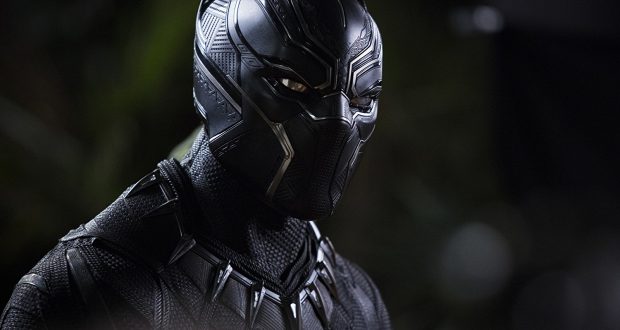At the end of last week, I reviewed Marvel’s latest movie Black Panther. The film has, quite rightly, received a lot of attention for its focus on black African characters. Speaking as a white guy, it is all too easy for me to dismiss the importance of traditionally sidelined people and cultures to appear in our media. Not least in big budget avenues that typically exclude them or treat them as peripheral stereotypes. But Black Panther is part of a trend of films which, whilst espousing progressive and noble causes, has its critical reception conflated with its larger demographic significance. Now, I enjoyed the film. But it isn’t that good.
We all know hype when we see it but this takes place in a politically toxic environment. We are finally seeing some major push-back on the homogeneity of people working in front of and behind the camera in the film industry. This inevitably leads to hectoring from the bigoted bottom-feeders of society. People who organise extensive online campaigns of abuse at any production prominently featuring women, people of colour, and alternative gender or sexual identities. These hate-mongers will decry any positive reception for these films, dubbing it all a blind liberal conspiracy. These same people tried to mount a campaign to spike Rotten Tomatoes and other aggregator sites with negative reviews for Black Panther. I will take hype over this nonsense, any day.
But I do think we can do better. There are certain reviewers or publications which go beyond paying heed to the significance of films flying the flag for representation. They wantonly suspend critical judgement and buy into the rabid hype. Hype is the reprieve of undiscerning gushers on social media. It is no recourse for anyone claiming to have any insight on films. So there are some bad reviews, though? There are always are some. Hacks are present in any industry. Why is this even worthy of comment? For several reasons. Firstly, it is a trend that sees no signs of abating even in the professional critical world, let alone the blogosphere. Secondly, it gives ammunition to right-wing nut jobs intent on fighting a culture war. Thirdly, it ignores some important relationships between craft and politics.
“Black Panther” pushes past many of the clichéd plot devices, archetypes and formulas of standard comic book blockbusters.
– Colin Covert, Star Tribune
The above quote indicates exactly what I am talking about. In that it is demonstrably not true. Writing a glowing review of the film, long-standing Chicago film reviewer Colin Colvert imbues Black Panther with a revolutionary approach to its genre. That does not add up. Black Panther does many things well. Chief among them are visual design, an engaging core cast, and a legitimate political outlook underpinning the film. It is nonetheless a fairly typical superhero origin blockbuster with a three-act structure. It prefers action sequences to its more interesting elements, the villain is absent for most of the film so does not emerge fully developed, the third act is a bit of a mess, it’s too long, and the CGI is actually a bit ropey in a few scenes. Black Panther is significant because it represents a move in the industry to be more inclusive. As a qualitative product, it is entertaining but not essential viewing.
One response might be the go-to of all those who struggle to engage themselves critically: ‘Well, that’s just your opinion’. Yes. Yes, it is my opinion. It is an opinion honed by practised analysis of films and which, when you watch Black Panther, actually correlates to what appears onscreen. There is always a range of informed opinions on any film, but that does not validate self-evident lies. Debating the effects of the cinematography in David Fincher’s films is a critical discourse of opinion. Claiming Michael Bay’s films look better is just wrong.
My ire is peaked mainly because this is a trend. Wonder Woman was hailed as a feminist landmark. Yes, it is our first female-led modern superhero film. But the protagonist ended up sidelined in her own film, the plot was a poor rehash of Captain America, and it was riddled with half-finished effects. Chris Pine gave one of the best performances in the film, the bar was that low! The last Ghostbusters film had to surmount a tidal wave of sexist abuse, only for the film to land limply with its poorly thought-out concept, underwritten characters, and deeply unfunny ‘humour’. Great that studios were willing to back female-led projects but these films disappointed. And you wouldn’t know it from the first wave of reviews.
My disdain for poor standards among critics aside, this matters in a broader sense too. If the qualitative issues with these films are not forcefully articulated, any underperformance will be attributed to the representational cause they espouse. Studios are unlikely to respond at the best of times to considered feedback, but if the loudest voice in the room is shouting that Ghostbusters underperformed because it dared to feature women in major roles, this will retrench the film industry’s bad habits. There are no guarantees, but speaking to the actual craftsmanship of these films and having it dominate discussions might go some way to stopping the big studios relapsing into a world of white cis straight guys.
There is a conceptual point that I often see overlooked in these debates. What if the quality problems of these films directly impair their ability to act as beacons of representation? Let’s take Martin Luther King’s ‘I have a dream’ speech as a point of comparison. We might like to think we admire this speech purely for its sentiment, for its summing of up of so many noble humanitarian principles. Is it not also true to say that it is well-composed and a stunning example of powerful rhetoric? We would not respond to it so well if MLK had produced a rambling monologue which, whilst well-intentioned, had no clear through-line and never got to the point.
If it is possible to have an article representing a good cause but which is poorly executed, can something that is actively evil be well made? Of course. The point is well-made in cinema. There are several examples of major cinematic innovations led by racist propaganda films. Most notoriously there is Leni Riefenstahl’s The Triumph of the Will, the opus of Nazi cinema. The morals of the film are repugnant but we must understand that the pervasiveness of Nazi ideals at the time was in part due to the regime’s ability to employ sophisticated new media techniques in furtherance of their cause. It is very convenient when something as sexist and racist as the Transformers franchise is so transparently without artistic value or a basic degree of craft, but we must not think that this is always the case.
The point being made is that we, as people demanding a fairer and more inclusive society, should not divorce notions of quality and craftsmanship from our assessment of media promoting our values. If we do so, we allow our messages and ideals to be communicated poorly and diluted, if not corrupted.
If Wonder Woman is our rallying cry for feminist role models in popular culture, what does it say that the protagonist was rendered irrelevant by her male counterparts? The same with Jyn Erso in faux-empowering hatchet-job Rogue One. If anything, this validates perceptions we are actively trying to overturn. And what about the middle-ground like Black Panther? The film does indeed achieve its goal of promoting a cast of interesting and effective black characters. But we are being disingenuous if we hold it up as a masterpiece of modern popular cinema. This perpetuates the harmful view that black cultural products can’t be held to the same degree of scrutiny if they want to gain recognition. That if they were, they would never be considered good enough. These films absolutely need their representational causes acknowledged and praised, but suspending criticism of them and not demanding better is detrimental to the very causes they espouse.
 Pop Verse Pop Culture Universe
Pop Verse Pop Culture Universe










